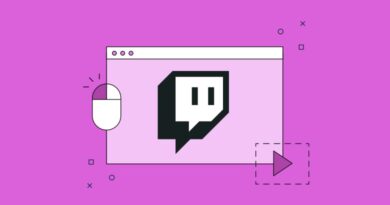On-Page vs. Off-Page SEO: What You Need to Know
Search engine optimization (SEO) is a powerful tool for improving your website’s visibility and driving organic traffic. To build an effective SEO strategy, it’s essential to understand the two main pillars of SEO: on-page SEO and off-page SEO. Each plays a distinct role in achieving higher rankings and attracting the right audience. In this article, we’ll break down the differences between on-page and off-page SEO, explore their unique benefits, and share actionable SEO strategies to help you succeed.
What Is On-Page SEO?
On-page SEO refers to the optimization of elements within your website that affect its search engine rankings. These are factors you can directly control to improve your site’s relevance and user experience.
Key Components of On-Page SEO optimization
- Keyword Optimization
- Use relevant keywords in titles, headings, meta descriptions, and throughout your content.
- Focus on natural keyword placement to avoid overstuffing.
High-Quality Content
- Publish informative, engaging, and original content that addresses user intent.
- Incorporate multimedia such as images, videos, and infographics to enhance user experience.
Title Tags and Meta Descriptions
- Create compelling title tags and meta descriptions that include target keywords and encourage clicks.
Internal Linking
- Link related pages within your website to improve navigation and distribute link equity.
Mobile-Friendly Design
- Ensure your website is responsive and performs well on all devices.
Page Speed Optimization
- Use tools like Google PageSpeed Insights to identify and fix issues slowing down your site.
Benefits of On-Page SEO optimization
- Improves user experience, making your site more appealing to visitors.
- Enhances search engine understanding of your content.
- Provides immediate control over optimization efforts.
What Is Off-Page SEO?
Off-page SEO focuses on actions taken outside your website to improve its authority and credibility. It’s about building relationships and earning recognition from other reputable sources.
Key Components of Off-Page SEO
- Backlink Building
- Earn links from high-authority, relevant websites to signal credibility to search engines.
- Avoid spammy or low-quality links that can harm your rankings.
Social Media Engagement
- Share your content on social platforms to increase visibility and drive traffic.
- Build a strong social presence to engage with your audience and promote brand awareness.
Guest Blogging
- Write articles for industry-related blogs and include a link back to your site.
Online Reviews
- Encourage positive reviews on platforms like Google My Business and Yelp to build trust with both users and search engines.
Brand Mentions
- Get mentioned by reputable sources in your industry, even without a direct link.
Benefits of Off-Page SEO
- Increases your website’s authority and trustworthiness.
- Expands your reach to a broader audience.
- Strengthens your competitive edge by building valuable relationships.
How to Balance On-Page and Off-Page SEO
For a successful SEO strategy, both on-page and off-page SEO must work together. Here’s how to strike the right balance:
- Start with On-Page SEO
- Optimize your website’s structure, content, and technical elements first.
- A strong on-page foundation makes off-page efforts more effective.
Build a Robust Off-Page Strategy
- Focus on earning high-quality backlinks and engaging with your audience on social media.
- Collaborate with industry influencers and partners to expand your reach.
Monitor and Adjust
- Use tools like Google Analytics and SEMrush to track your performance.
- Continuously refine your strategies based on data and evolving trends.
Both on-page SEO and off-page SEO are essential components of a comprehensive SEO strategy. While on-page SEO ensures your website is optimized for search engines and users, off-page SEO builds the authority and credibility needed to rank higher. By understanding their unique roles and implementing the right SEO strategies, you can achieve sustainable growth and maximize your online presence. Start optimizing today and watch your rankings soar!
Ready to improve your SEO titles? If you are working on seo optimization of the website for cat food, Start applying these tips today and see the difference it can make for your rankings and traffic.




